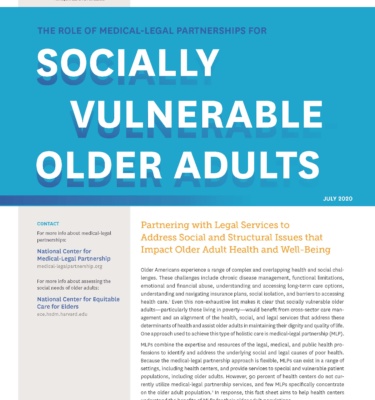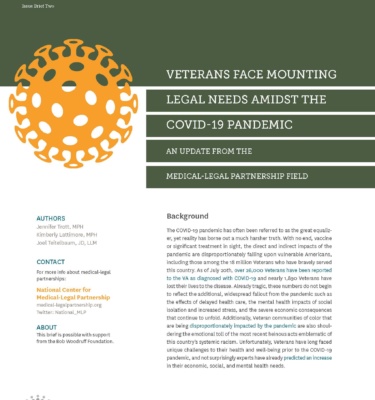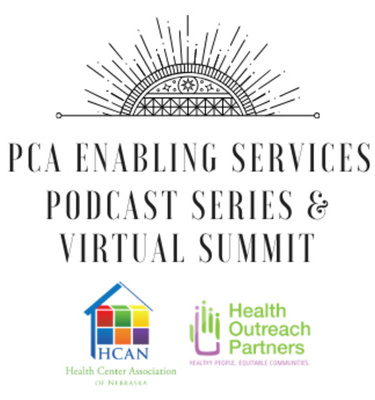Friday, July 24, 2020
Older Americans experience a range of complex and overlapping health and social challenges. These challenges include chronic disease management, functional limitations, emotional and financial abuse, understanding and accessing long-term care options, understanding and navigating insurance plans, social isolation, and barriers to accessing health care. This fact sheet looks at how integrating medical and legal services for older health center patients can help mitigate these challenges and begin to comprehensively address problems that directly impact a patient’s health and well-being. It examines how these partnerships work, and highlights two medical-legal partnership programs for seniors in San Francisco and Boston....Read More
Monday, July 20, 2020
The COVID-19 pandemic is exacerbating Veterans' economic, social, and mental health needs. Legal assistance is needed more than ever to help address increased unemployment and housing challenges. This issue brief describes how the pandemic is affecting Veterans' social and legal needs, and details how five VA-based medical-legal partnerships are responding....Read More
Tuesday, July 14, 2020
A recent study examined the impact of unmet legal needs on hospital readmission rates at the SIU Family and Community Medicine inpatient...Read More
Monday, June 15, 2020
The Health Center Association of Nebraska, in partnership with Health Outreach Partners, created a seven-episode podcast exploring different aspects of health center enabling services. Episode four is a conversation with Ellen Lawton, director of the National Center for Medical-Legal Partnership, who shares how health centers can integrate community legal services into their on‐going SDOH work, and how to think about measuring the value of legal services in the health center context. The interview focuses on how to align enabling services screening, data collection and interventions with medical-legal partnership services within a specific population or SDOH domain. ...Read More



